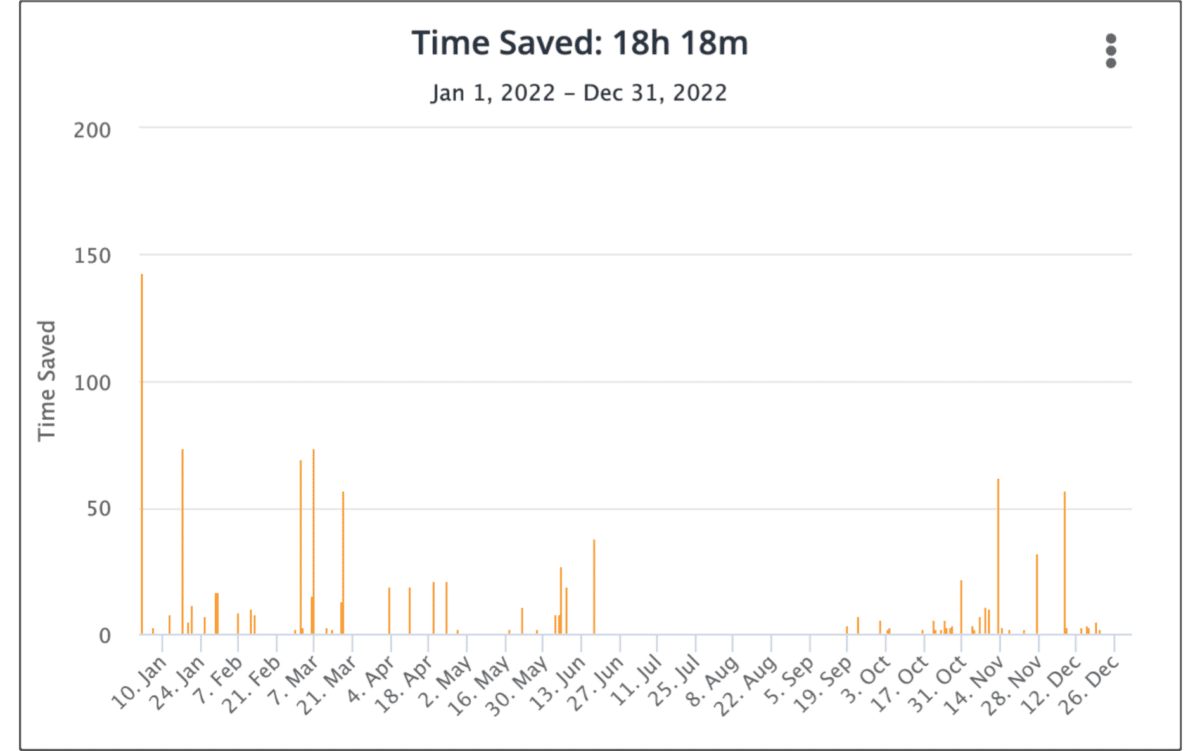Many parents and teachers find themselves dealing with aliteracy: kids who are reluctant readers. While illiteracy rates are low in the United States, aliteracy is a widespread phenomenon, with the average American only reading at a middle-school level.
Mark Phillips, who originally hails from the UK, has been teaching middle school language arts for over 30 years and has some helpful suggestions and perspectives for struggling parents, teachers, and students. He teaches at Greely Middle School, which U.S. News and World Report has ranked as the #1 middle school in Maine.

Middle school is often regarded as a challenging age range to teach, but Mark is invigorated by it. “I love it. I was just talking to my principal a couple of weeks ago and just saying I think teaching middle school is kind of like drinking from the fountain of youth. Because it keeps me young,” Mark says.
Check out the Snippets Mark uses in his classroom.
From aliteracy to teaching literacy
Perhaps surprisingly, Mark himself struggled with aliteracy as a young man: “I would say I was aliterate from the age of about 13 to the age of 21.”
“If I could, I would find a lot of other things to do with my time other than read, but occasionally I would come across a book that would kind of pull me back into the game. I can definitely relate to kids who don’t want to read and would rather do anything else,” Mark explains.
Mark’s key to unlocking his love of reading was discovering enough “trigger books” that would nudge him out of aliteracy, and that carries through to his teaching style.
“My mission is to put that trigger book in as many hands as possible for kids who resist reading. Some kids come in and they absolutely love reading. But for the kids who don’t particularly like to read, it’s trying to find that trigger book that will make them want to read more,” Mark says.
“One of the things that really brings me joy is when a student lets me know that they are really enjoying a book that I’ve suggested they try. Particularly if it’s a student who has not been an avid reader in the past,” Mark explains.
How kids have changed over 30 years
We were curious if Mark has seen a change in the kids over his teaching career.
“When I started, I felt like I could basically give the kids an assignment and the vast majority of them would just go ahead and do it. And over the years that kind of independence has diminished a bit,” Mark says.
Mark wonders if an increase in technology usage plays a role.
“I do wonder to some extent how much technology is playing a part. Because certainly when I started teaching, we didn’t have cell phones and we didn’t have as many computer games out there,” Mark says.
“So, you know, I think that’s having an impact on their ability to focus and their ability to stick with things,” Mark adds.
Despite being immersed in technology, Mark often finds that kids need help using it.
“It’s interesting because they’re able to do certain things with technology. But then you say, ‘Okay, well try and do these various tasks on a Google document,’ and they really don’t know how to do that. So we actually spend two or three weeks at the beginning of the sixth-grade year, kind of teaching them how,” Mark says.
“We’ve got to somehow help them learn how to stick with something that’s not immediate gratification,” Mark explains.
Teaching in a technological world
Despite his reservations about technology, Mark has embraced it in his teaching.
Mark is humble about his own tech abilities, but he’s been using Apple computers since the 1980s. These days, like many schools, Greeley Middle School is heavily based around Google.
“It’s one-to-one Chromebooks, with [grades] six to eight being allowed to take them home to work on. We’ve been very fortunate,” Mark says. Mark uses Google Classroom for managing and grading assignments.
“So for example, I have an assignment that I do once a week; it’s a reading response. And it’s a relatively short assignment, but it tries to help them practice a variety of things such as how to cite from the books they’re reading,” Mark explains.
“I think the reason I was attracted to TextExpander was in trying to give feedback to students about their work. I was finding myself saying the same things or writing the same things to multiple students,” Mark says. Mark has created a Public Group of his favorite teaching Snippets that you can adapt for your classroom.
“Having TextExpander provides me with an opportunity to write often-used comments very quickly [and] made that feedback loop much easier to complete,” Mark says.
“TextExpander, with its hyperlink options, allows me to leave a comment that can send a student to resource material— videos, slide decks, other documents—to help them revise their work. This makes comments much more useful than just saying ‘more detail needed’ or ‘remember citation rules,’ Mark elaborates.
Mark saved over 18 hours of typing time in 2022! That’s less time typing and more time spent teaching, drawing up lesson plans, and, of course, reading.

If you’re a teacher who would like to trade tips on how you use TextExpander in your classrooms, you can contact Mark on Twitter.
Books to shake off aliteracy
Where can you start looking for those trigger books to counter aliteracy? Mark has some suggestions.
Two of his own trigger books were To Kill a Mockingbird by Harper Lee and One Day in the Life of Ivan Denisovich by Aleksandr Solzhenitsyn.
“There was an amazing book by Doris Lessing called Briefing for a Descent into Hell that blew my mind. So [these books] would come up, and I would find them in the house or my older siblings would come back from college with a book they were reading,” Mark remembers.
“I would think, ‘I’ll try that,” and I was just like, ‘Wow, this is great. I need more of this.’,” Mark says.
“And I remember taking a class on adolescent literature and coming across Robert Cormier. And I was like, ‘Holy cow, this guy’s amazing,’ and, so feeling that for myself, I kind of wanted other kids to feel that too,” Mark recounts.
As for what he teaches his students, it’s a bit more modern. They’ve recently been reading The Remarkable Journey of Coyote Sunrise by Dan Gemeinhart.
“In the past, we’ve used a collection called the Wicked History series,” Mark says. They’re relatively short. nonfiction books about some nefarious characters in history like Henry VIII, Robespierre, and Vlad the Impaler.
Students would then stage mock trials of those infamous characters: “We asked [the students] to do a little bit of digging around those characters in preparation for a mock trial. We were fortunate enough to have a lawyer who works for the Justice Department come in and act as the judge. So the kids would actually dress up and make their case, whether or not there’s enough evidence to put this person on trial.”
Mark offers another pick for reticient readers: “There’s a great series called the Ranger’s Apprentice by a guy called John Flanagan. He’s an Australian. And he wrote these books as short stories initially for his 12-year-old son who hated to read, and they have since become a pretty popular kind of adventure series.”
Mark also encourages his students to read independently. “I give a lot of credit to my kids for independent reading. I’ll do something like a reading response that’s not tied to a specific book, but it’s really trying to encourage them to look for different kinds of literary elements and ways to understand character development in whatever books they’re reading,” Mark says.
“I think it’s getting to know the kids, getting to know their interests, and then saying ‘Okay, so give me the name of a book that you enjoyed recently.’ And if they can’t do that, then you go back to their interests,” Mark recommends.
“If you’re interested in sports, try reading some Mike Lupica, or if you’re into the outdoors, try reading Gary Paulsen and just being able to kind of put the right book in the right hands at the right time. I think that’s key,” Mark says.


Fantastic and exemplary work, Mark! Your dedication is readily obvious. Congratulations!